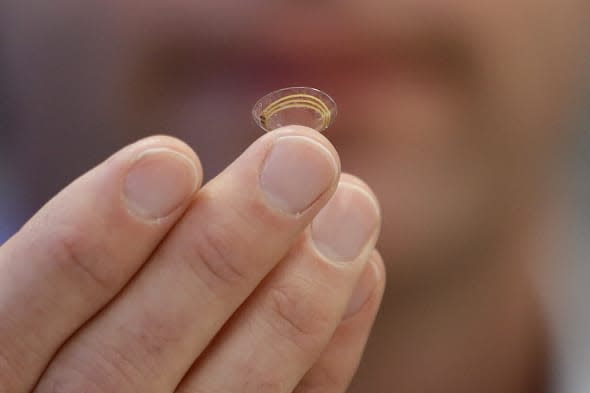Virtual reality "will help us book holidays"

Choosing and booking a holiday is set to become much easier and more sophisticated, allowing us to make virtual reality visits to potential destinations, according to a new report by travel comparison site Skyscanner.
At the announcement in London, the first of a three-part series of reports looking at what leisure travel will be like in 10 years time was discussed.
Skyscanner head of B2B, Filip Filipov, said: "This report focuses on three main trends that we believe in the next 10 years will affect travel profoundly."
He said he believed that virtual reality would provide be a way of window shopping so that people could directly experience their destination before they went.
Virtual reality headset Oculus Rift already allows users to enter 3D virtual worlds, and as part of the demonstration a virtual tour of a Tuscan villa was shown.

Filipov pointed out that language barriers could also be broken down with the new technology.
"My parents don't speak a foreign language, which means that every time they travel there is this fear that something might happen, but with things like Google Glass that problem goes away."
Personal assistant software like Siri on Apple's iOS platform can already interact with users, while Google Glass has a live translation app available so menus and signs are translated for wearers.
Fillipov also said that search technology would be revolutionised.
Skyscanner say the semantic search aspect of the future will see users ask for a 'city break' and their computer will automatically present one based on data gathered from your habits, preferences and even mood.
The presentation detailed how existing technology and its continued advancement will lead to an entirely different way of searching for a holiday.
Products like the Oculus Rift virtual reality headset, recently acquired by Facebook, could be used to preview holiday destinations - walking around them before booking.
Facial recognition technology was also showcased: it can now be placed onto a contact lens and read moods, with a bendable circuit that can fit on a lens having been developed by the Swiss Federal Institute of Technology. Google has also began development of their own smart contact lenses.
Skyscanner believes this technology will be applied to personal assistants around the home, suggesting it will be able to recommend a holiday when it tracks your mood and posture changes.
Samsung UK president Andy Griffiths also recently suggested that he felt the technology trend would eventually move onto the idea of the smart home.
Skyscanner CEO Gareth Williams said that by 2024 travel search and booking "will be as easy as buying a book from Amazon."
The presentation follows a flurry of recent activity in the wearable technology sector, with Facebook purchasing virtual reality headset developer Oculus VR last month for two billion dollars. That deal came just a week after futurist and industry expert David Evans suggested that wearable technology will eventually become part of the human body; being implanted into us and then ultimately replacing or upgrading aspects of the human body.
Read Skyscanner's The Future of Travel 2024 report
Related articles
Premier Inn launches hi-tech hotel controlled by app
Thomas Cook launches hi-tech holidays




